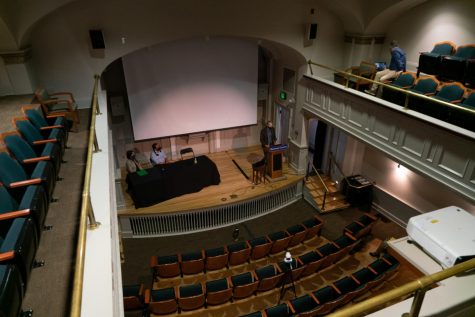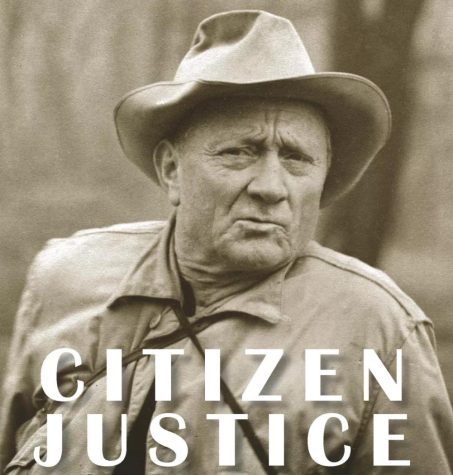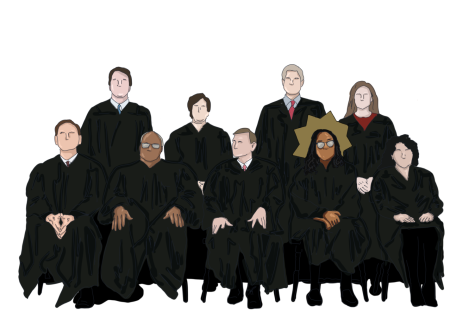Whitman helps celebrate the legacy of former Superme Court Justice William O. Douglas
September 30, 2021
Over 100 years ago, the United States’ Supreme Court’s longest tenured justice, William O. Douglas, graduated from Whitman. To commemorate his legacy, Whitman hosted a five hour-long conference in the Hunter Conservatory with professors from around the country.
As a student, Douglas received a full scholarship from Whitman and served as student body president during his senior year. Due to financial struggles, he ended up spending a semester homeless, living in a tent.
Douglas’s determination led him to earn a law degree from Columbia University. In 1937, he served as chairman for the United States Securities and Exchange Commission.
Two years later, President Franklin D. Roosevelt nominated Douglas to fill a seat on the Supreme Court.
The first part of Whitman’s conference celebrated Douglas’s environmental legacy, led by Heather Elliott from the University of Alabama, Adam Sowards from the University of Idaho and senior ES-politics major Renny Acheson.
Alice Lesniak, a senior politics major, facilitated the discussion panel on civil rights and civil liberties at the conference.

“His writings are really influential and powerful reflections on the environment, especially considering the time when he was serving. He was impressively ahead of the curve there,” Lesniak said.
In the conference, Professor Elliott spoke about Douglas as an activist. In response to a proposal to extend a coastal highway, Douglas led a protest in Washington State’s Olympic National Park.
Elliott shared a quote from Douglas: “Do roads have to go everywhere?”
Politicians at the time criticized Douglas’s activism based on a strict-constructionist perspective: judges should base their rulings on the literal interpretation of the Constitution, rather than considering their personal opinions or the given circumstances.
A loose-constructionist approach, on the other hand, looks beyond the intentions of the Founding Fathers and considers the context of a law.
Through his activism, Douglas portrayed his loose-constructionist interpretation of the Constitution. Professor Sowards said in the conference that Douglas made it very clear that “he was not going to give up his first amendment rights,” just because of his title as Supreme Court Justice.
Scott Skinner-Thompson from the University of Colorado and Marc-Tizoc González from the University of New Mexico discussed Douglas’s impact on civil rights and civil liberties.
Civil rights refer to government activity that promotes equality, such as the court’s ruling in Brown v. Board of Education (1954), which Douglas voted on. Brown ruled that the segregation of public education violated the Equal Protection Clause of the Fourteenth Amendment.
Civil liberties refers to protections against government. In Griswold v. Connecticut (1965), Douglas delivered the majority opinion, stating the court’s decision to uphold a married couple’s ability to seek counseling for the use of contraceptives based on a right to privacy. Griswold established this right to privacy as a civil liberty.
Because the right to privacy is not explicitly stated in the Bill of Rights, Douglas argued that the Founding Fathers implied this right based on other provisions—reinforcing his loose-constructionist approach to the Constitution.
This ruling set a precedent for Roe v. Wade (1973), where the right to privacy established in Griswold was applied to a woman’s decision to terminate a pregnancy.
In the conference, Lesniak spoke on the civil rights and civil liberties panel. Lesniak is from Texas, where most abortions past the six week mark have been banned. The Texas abortion law went into effect this September.
“I think his work in that area is particularly calling out to me at this moment in history,” Lesniak said.
Douglas served over 36 years on the court, setting a record for the longest tenured Supreme Court Justice in history.
In 1970, the house minority leader threatened Douglas’s tenure with an impeachment attempt.
Professor of Politics Jack Jackson, who organized the conference, said the impeachment effort “was politically driven by conservative opponents of the Justice.”
Lesniak referred to it as a “a veiled partisan push.”
Douglas’s dedication to environmental and social issues may have threatened his seat, but ultimately, this passion led to his recognition as one of the most significant justices to sit on the United States Supreme Court.







John Concillo • Sep 30, 2021 at 4:55 pm
I have never heard the term loose-constructivist.
Justice Douglas himself in an interview in 1972 with Eric Severeid said that he and Justice Black were in fact strict constructivists in response to that criticism. At 7:50 of this film he in fact calls himself a strict contructivist. https://vimeo.com/177603193
https://williamodouglas.org/